Christmas Is Over
According to the liturgical calendar, the Christmas season officially ends February 2nd, on Candlemass. While it was harder to celebrate this year, there was hope in the end.
I love Christmas in childlike, irrational and unreconstructed ways. Bringing evergreen trees into the house, lighting them up and decorating them is something I think about all year round. The trees become objects of veneration in my house—presences, beings. My very first memory is of my father holding me during the Christmas Eve service in our church in Wisconsin; I was playing with a small plastic angel I had been given to keep me occupied. In our household, Christmas Eve was easily the most important day of the year, and it was anticipated with an avid frenzy. I love Christmas lights, Christmas music, all Christmas foods and drinks and decorations and traditions with a devotion that is embarrassing.
This season I put up five trees, spent days decorating my house, and then enjoyed it in near solitude. I didn’t throw a party—not even a small one, didn’t have people over, didn’t entertain. I realized that I was kind of low—muted, afflicted with anhedonia and maybe a little depressed. The reasons for my mood were clear enough: our country had just elected a fascist would-be dictator. Ever since the election, I have had a hard time going out in the world and looking at people. Clearly, many of our fellow citizens saw their choices at the ballot box, and they chose fascism. I’m sure they had their reasons, but at the core, I believe those voters must harbor a desire to see a violent, ignorant bigot and rapist become one of the most powerful people in the world. By voting for him, they gave him the tools he needed to punish his enemies who voters must believe are their enemies too.
Queers are clearly one of the enemies being singled out for punishment by the fascists, and among queer communities, trans people have been particularly held up for abuse. It’s very easy to name a vulnerable group of people who constitute about 1 percent of the population as a problem, when the real problem we are all facing is the collection of 801 American billionaires who control $6.22 TRILLION in wealth. Those billionaires include the vile power-hungry monsters like Elon Musk, Donald Trump and Mark Zuckerberg, but they include other more benevolent monsters like Taylor Swift and Oprah Winfrey. They are all problems for Americans, for people around the world, and for the planet. Their obscene wealth is a crime of morality.
Over the holiday season, I also finally succeeded in selling my ancestral family home and property after a protracted process lasting more than a year. My family has lived in and around Fountain City, Wisconsin since the mid-19th century, and the home I grew up in was full of the material remnants of seven generations of Wunderlichs. When my mother made the decision to move into an apartment in an assisted living facility, she basically walked away from the house, leaving me to figure out what to do with everything in it. For nearly two hundred years, my family has owned land in Buffalo County, Wisconsin, and now we own nothing there. This isn’t some tragedy—I’m relived to have all of this settled, to be quit of the responsibilities and worries of possessing so many things, and I find lightening my hold on the material world offers a sense of liberation. It also has me feeling a bit unmoored from a home and a history I once thought I’d always return to.
Every December I hear from people who follow my Instagram account to see how I decorate my home for Christmas and I love that people love to see it. Lately, I have been reconsidering my engagement with Facebook and Instagram. I just don’t feel like creating free charming photo essays for a revolting class of digital overlords. And I’ll state the obvious that the ubiquity of those platforms has a negative hold on our politics, on our communities, and perhaps worst of all, on our imaginations. I’m going to take some time to decide how I want to engage with people online. While I don’t have nearly the number of followers here as I have on Instagram, on Substack I actually know who many of you are.
Here’s a little Christmas magic:
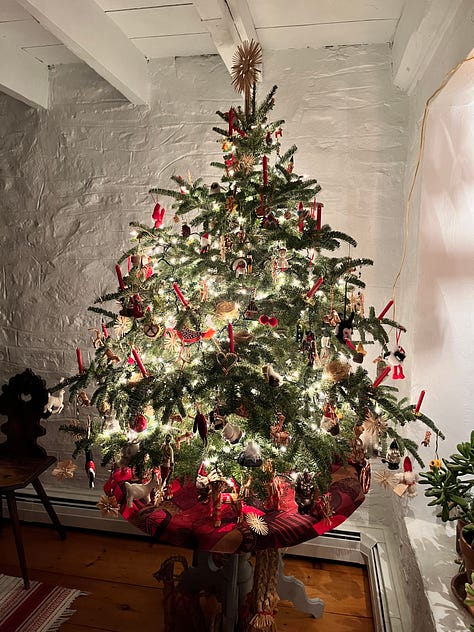
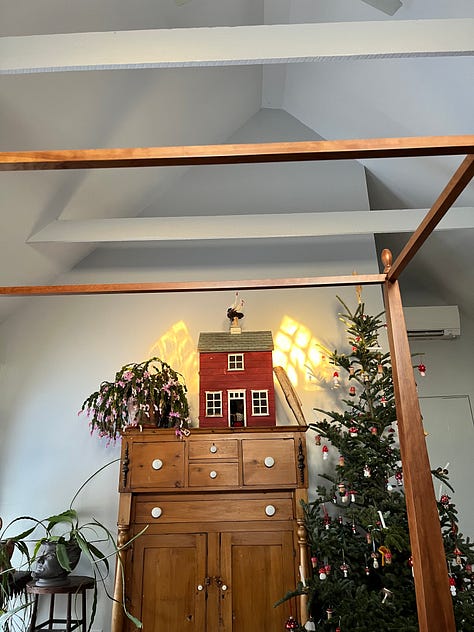
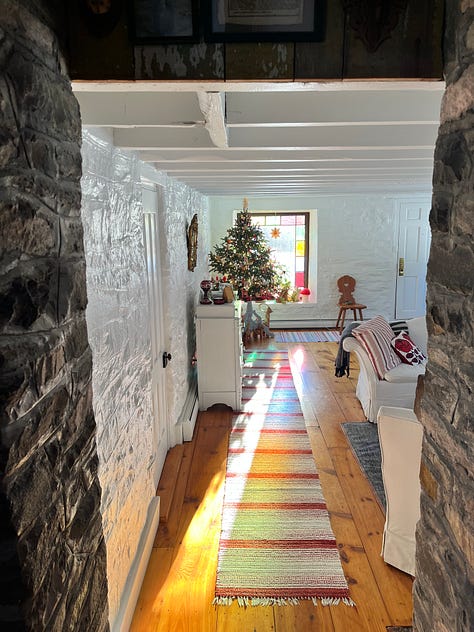
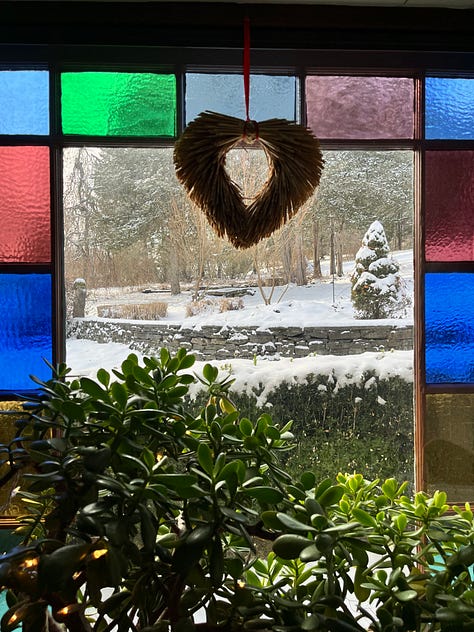
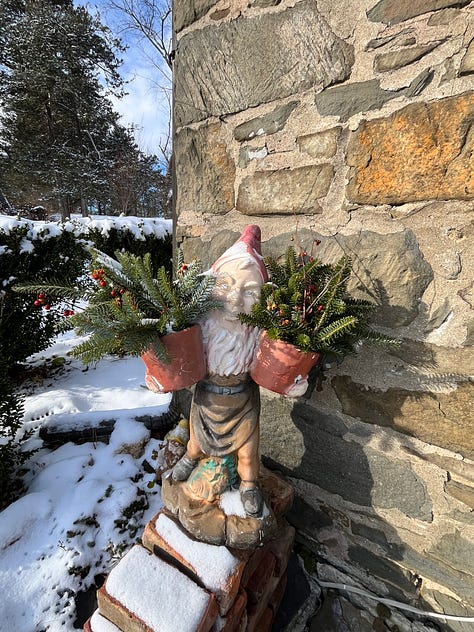
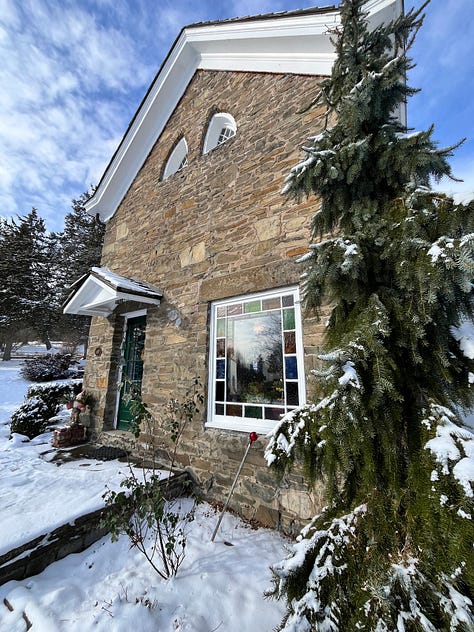
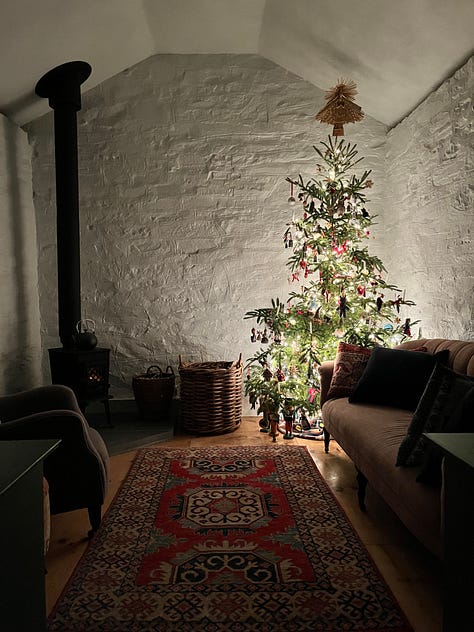

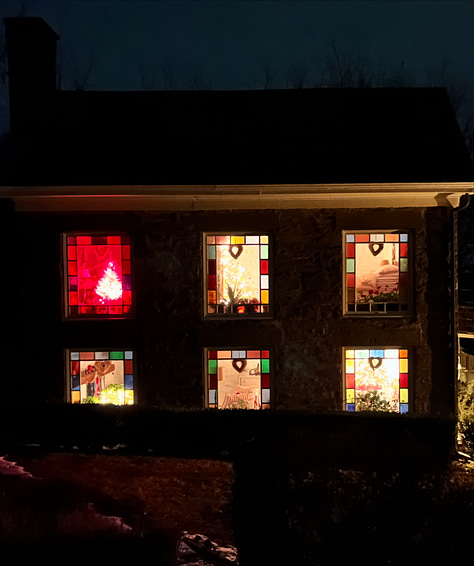
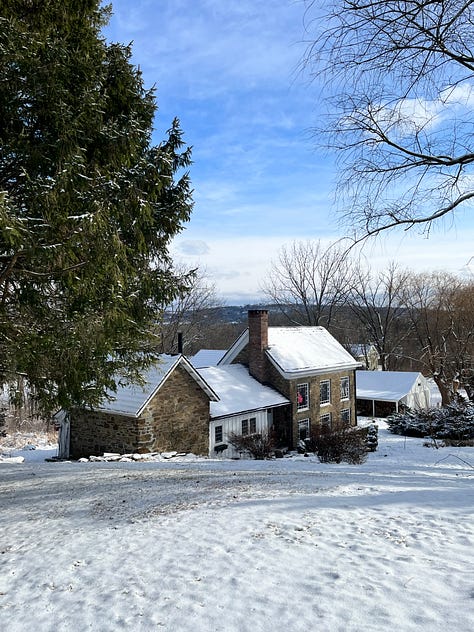
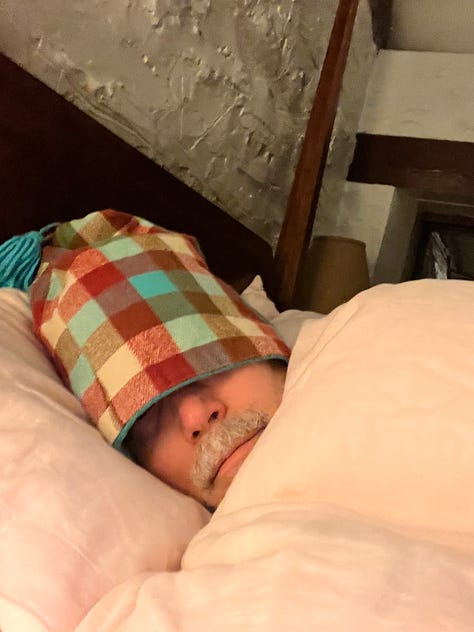
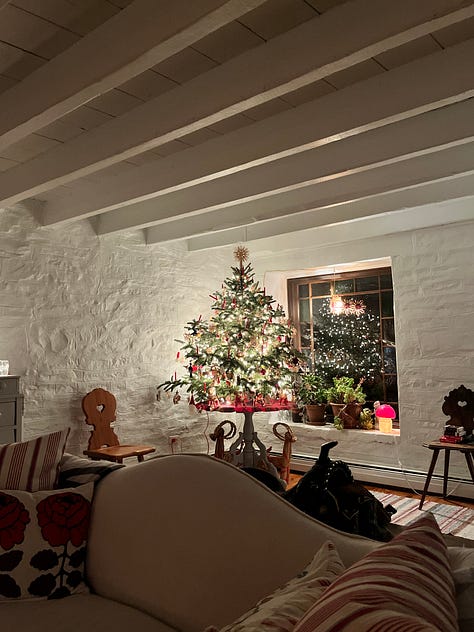
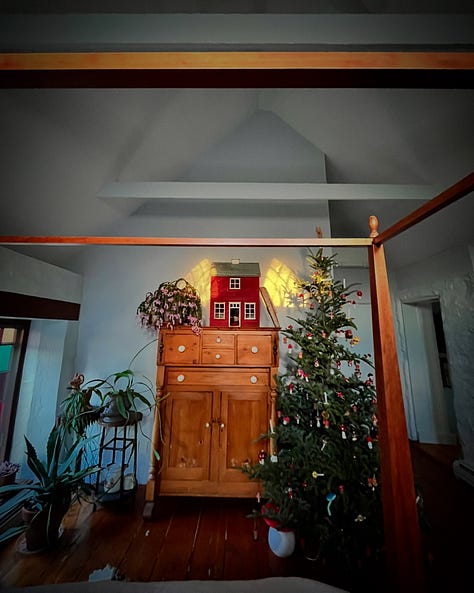
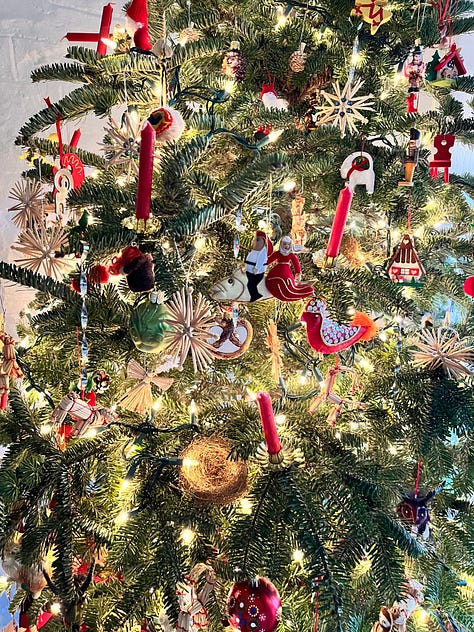
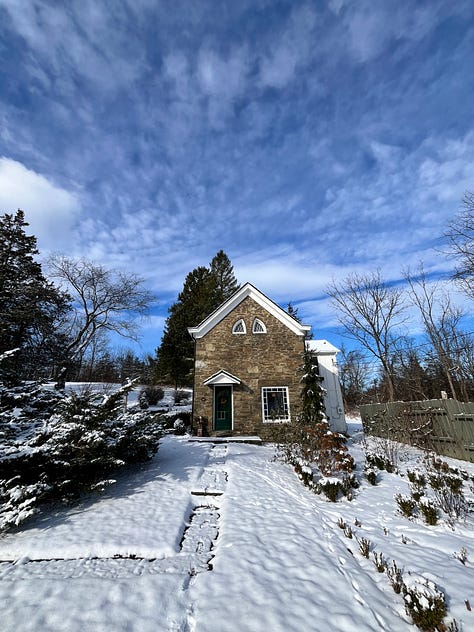
It feels as though I spent much of December lying on a sofa and staring at one of my lit up trees. While it was a bit lonely at times, and while I was clearly depressed, those weeks were also peaceful, a necessary period of reflection and of rest. As I emerge from this seasonal quietude, I am feeling free of several burdens, a bit lighter, maybe a little less directed. Twice I have had to take charge of liquidating an estate, disposing of the contents of a property and then selling it—once for what had been my grandfather’s farm, and now the house and land where I grew up. As the one charged with disengaging from a legacy, I’ve gotten good at it, but I do wonder why it has come to me to do that work, and to do it mostly alone.
In January at Bennington College, we had our January residency for the MFA program I lead. This year we are having a real New England winter, and Vermont was snowy and cold. Close to 200 people were on campus for the residency, and in the nearly thirty residencies I have been part of, this one felt the most vibrant, the most vital and necessary. As I emerged from my holiday torpor, I could see how important it was for people to be together, for students and faculty and staff people to join in common cause, to discuss literature and writing and friendship. I saw how precious it was, how important the place and experience was to those who took part in it. I left feeling newly committed to keeping the program strong, to advocating for it, for helping it grow and change in exciting ways. As troubling as our current moment is as a nation, I saw the community I had some role in shaping, and I understood I needed to do whatever I could to make sure this refuge and this education survives and thrives.
It’s February as I write this, and another snow storm is arriving in Catskill in the next few hours. It’s been a long and cold winter, but spring will come—I’m quite sure of it.



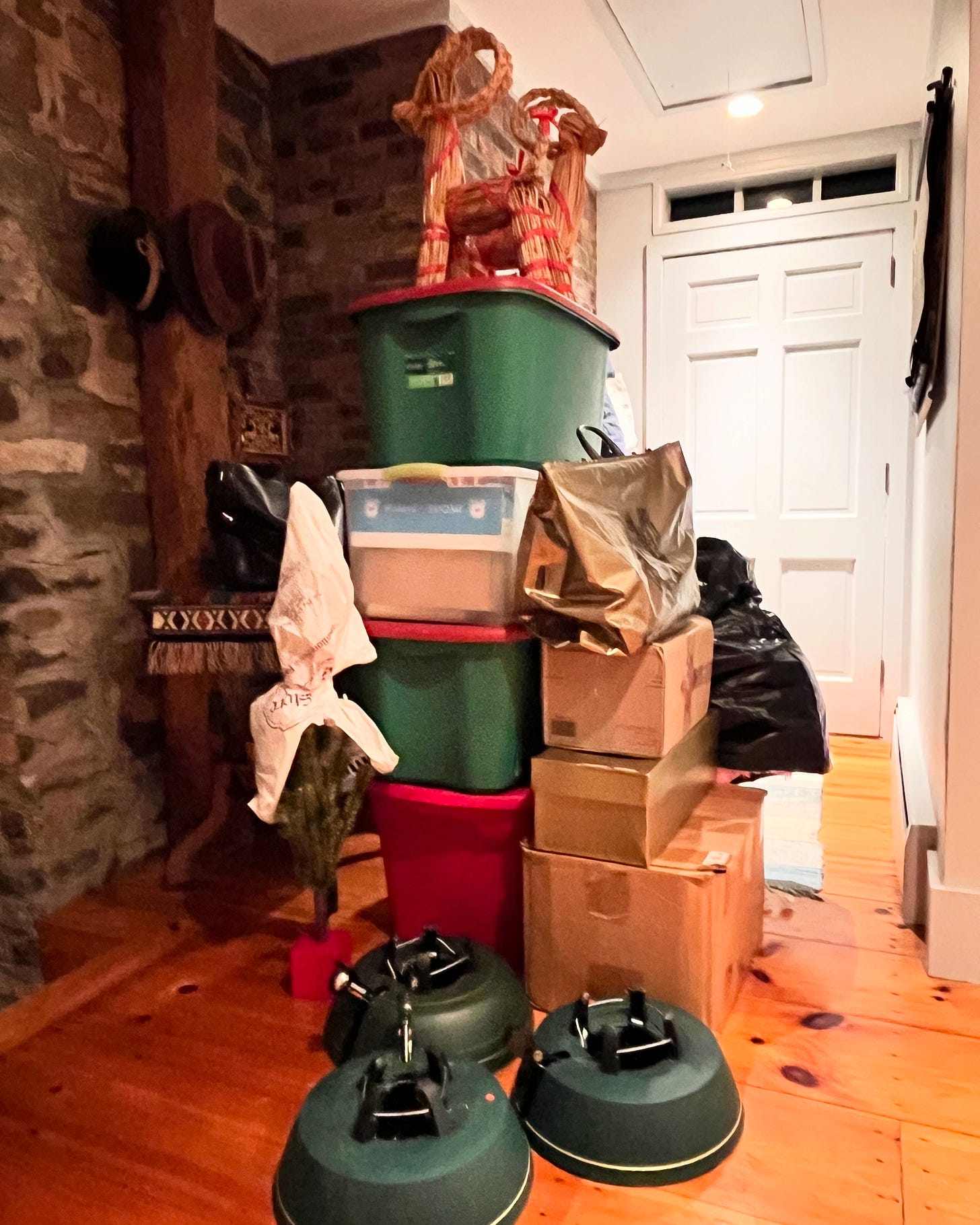
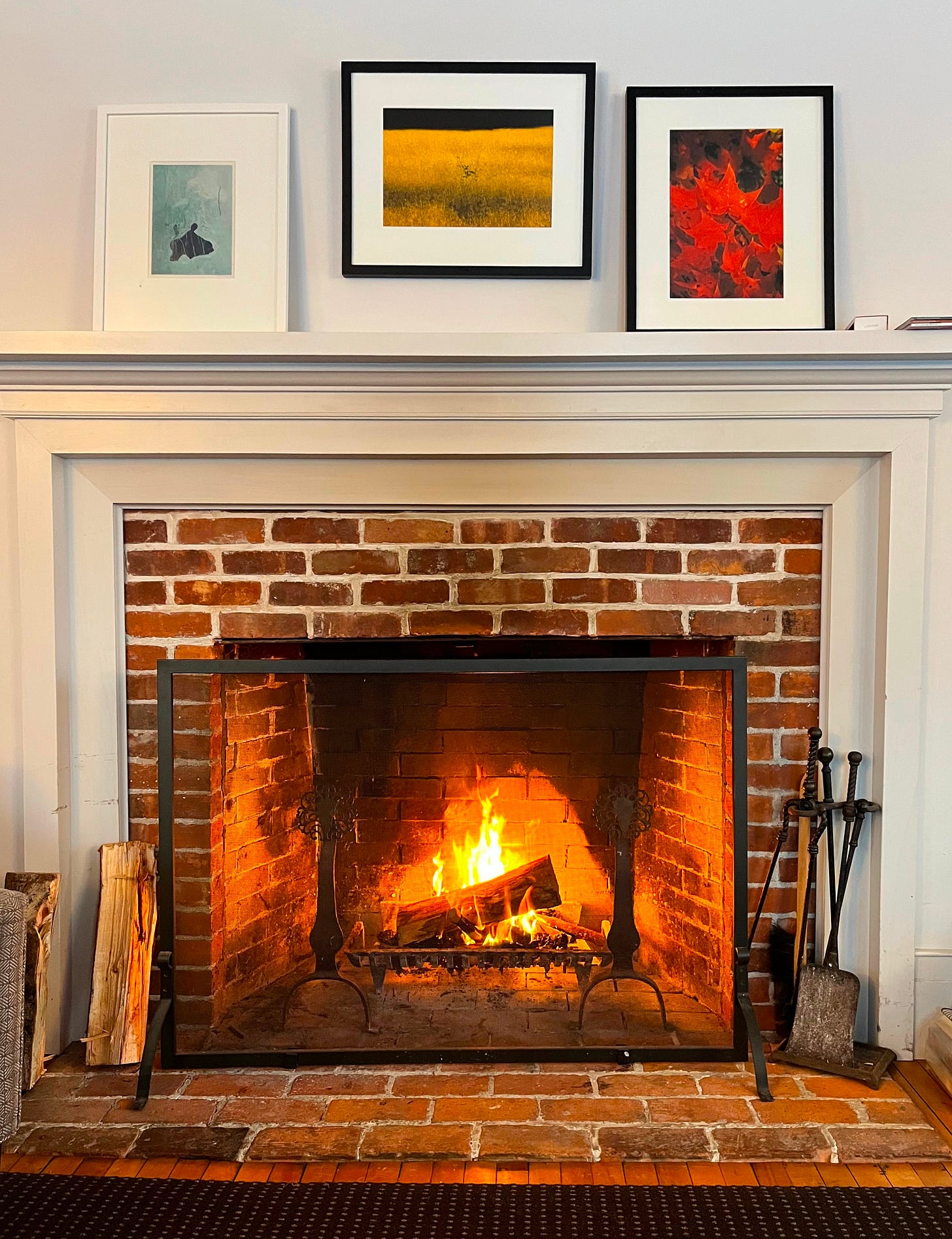
Thank you, Mark. Know that the work you do for BWS is sustaining many of us through this terrible tribulation. I love seeing your beautiful home, ache w the thought of your letting go of your heritage, and am grateful for who you are for us.